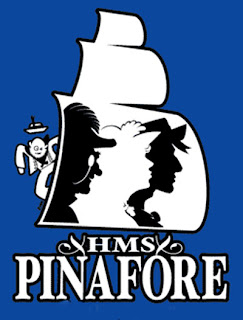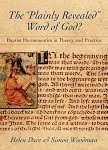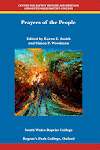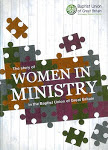OK here’s the rant, and I should warn you, it’s been a long time coming...
About five years ago, the powers that be in the road transport industry became convinced that in the name of safety it would be in all our interests to replace the corrugated metal crash barriers which run down the centre of our motorways. These tried and tested barricades, with built in ‘give’ to absorb the impact of a crash, were, it seemed, passé. So they replaced them for a while with what those of us who ride motorbikes (a Honda VFR750F if you’re interested) call ‘human cheese wire’. Eventually, they saw the error of their ways and started to remove the wire, to replace it with a more functional alternative: our motorways are now divided by state-of-the-art barriers which I call ‘concrete walls’. You’ve probably noticed this. I still can’t work out how careering into a concrete wall at 70+mph is a safer bet than a carefully engineered crash barrier, but there you go, you can’t argue with progress. However, that is not the object of my rant. It is merely the starting point for the sequence of actions which led to my discovery, this morning, of a physical manifestation of the Unforgiveable Sin.
I live in Bristol and work in Cardiff. It is a journey of 36 miles, and should take me 36 minutes door-to-door. A very acceptable commute, I feel. It’s motorway almost all the way, and I like driving. No problems. I do blanche slightly at having to pay every day to use the Second Severn Crossing. It was £3.70 when I started this journey on a regular basis in 2004, and it’s now £5.70. I can’t see that it’s £2 per day better, but you can’t argue with progress. On the subject of paying to use motorways, though, if I might digress for a moment... a) what is my road tax for if not to pay for the roads I use? and b) if I do have to pay to use a road, I really really really really expect that the act of paying for it should not make the experience of using it worse. If I pay for something that should by rights be free at the point of use, I want a better experience and not a worse one. If I were to choose not to have my operation with the NHS, and to go to a BUPA hospital instead (I wouldn’t, that that’s beside the point), I would expect that the BUPA experience would exceed that of the NHS one, not the opposite. So, to motorways. On the whole (this morning excepted, but I’m coming to that), motorways allow me to travel at 70mph, uninterrupted, and efficiently. It’s a great idea: a long, straight road, with lanes for the slow people, and lanes for me and my speed-loving compatriots. No roundabouts, no T-junctions, no in-built obstacles. All for free (or at least, paid for by my road tax). But then we get to the Second Severn Crossing, or the Dartford Crossing, both of which I use regularly. At this point I have to pay extra. So what do I get for my money? Can I travel at 100mph on this bit of road? No I flipping well can’t! What I get is a long queue whilst I wait to give them my money. It’s outrageous. There should be a law passed which states that if the queue to pay to use the road exceeds a waiting time of, oh I don’t know, 30 seconds, the barriers should be opened until the queue has dissipated. Necessity is the mother of invention, and I’m fairly sure they’d quickly find a way of billing me without making me wait for the privilege. They can fine me if I exceed 50mph in an average speed camera zone, and that happens when I speed up. So surely there’s a way of billing me to use the road which doesn’t require me to slow down, stop, wait in a queue, and then hand over cash or wait for the machine to read my Tag?
Anyway, to the M4. The process of replacing crash barriers with concrete walls has been rolling out across the UK with relative ease. A few weeks of roadworks, warnings of ‘possible delays until November’ (that long?) and hey presto, you’ve got a nice unforgiving concrete wall to hit. However, not so on the stretch of the M4 to the north of Newport. There, about four years ago, they put in 15 miles of ‘average speed cameras’ (could they not afford good ones?), limiting us all to 50mph. They removed the old corrugated metal barriers, and employed a couple of guys to begin the process of building the new concrete wall one pebble at a time. Mile after mile of restricted speed, but with no obvious sign of work taking place for 95% of that length. About a year ago, they realised that there was no discernable progress being made, and so instituted overnight M4 closures north of Cardiff, between 8pm and 6am. I frequently travel home after 8pm, and now have to use the SDR (Southern Distributor Road) round the south side of Newport. OK. As long as they’re making progress. But are they? After a year of overnight closures, coupled with years of speed restriction, still, very little is happening.
Part of the ‘improvements’ (building concrete walls, filling in pot-holes, re-painting the white lines) has involved the installation of incredibly sophisticated advanced traffic management warning systems. Or, as I call them, ‘large dot matrix screens’. It’s not a bad idea. If there’s a problem, they can use the screen to let me know, and I can take a decision to go another way. So, this morning, at 7.00am, I’m travelling along the M4, and all is well with the world. The dot matrix screens are blank. Suddenly, I hit the back of a queue. All stop. What? There must have been a terrible accident, I thought. How dreadful. A rush-hour fatal accident in the tunnels perhaps? It’s happened before. I put on the local radio, and waited for a traffic report. And when one came, I received my insight into the Unforgiveable Sin.
Apparently, the overnight roadworks had ‘overrun’. What??? Scheduled, planned roadworks, that have been ongoing for years, overrun to the extent that the entire M4 has to be closed in the morning rush-hour. This simply should never happen. There is no excuse. I, and thousands and thousands of other motorists sat in a queue for an hour, waiting to filter down to the hard shoulder to get round the ‘overrun’ roadworks. Vast amounts of money were lost this morning to the economy of South Wales due to the late arrival at work of thousands of commuters. Why? Because the roadworks had ‘overrun’. So I queued, and queued, and queued. Eventually, like grain of sand in the egg-timer of the M4, I reached the ‘overrun’ roadworks. As I drew level with the blockage, I expected to find a motorway full of highway engineers, all working frantically to resolve the problem caused by their nocturnal incompetence. But no. The entire motorway was coned off, but there was not a lorry, not a digger, not a road roller or concrete mixer to be seen; in fact there was no sign of any work being undertaken whatsoever. Simply two guys, wearing yellow jackets, wandering around where the fast lane, my lane, ought to be; pondering whether to remove the cones and open the motorway. This is the Unforgiveable Sin.



































